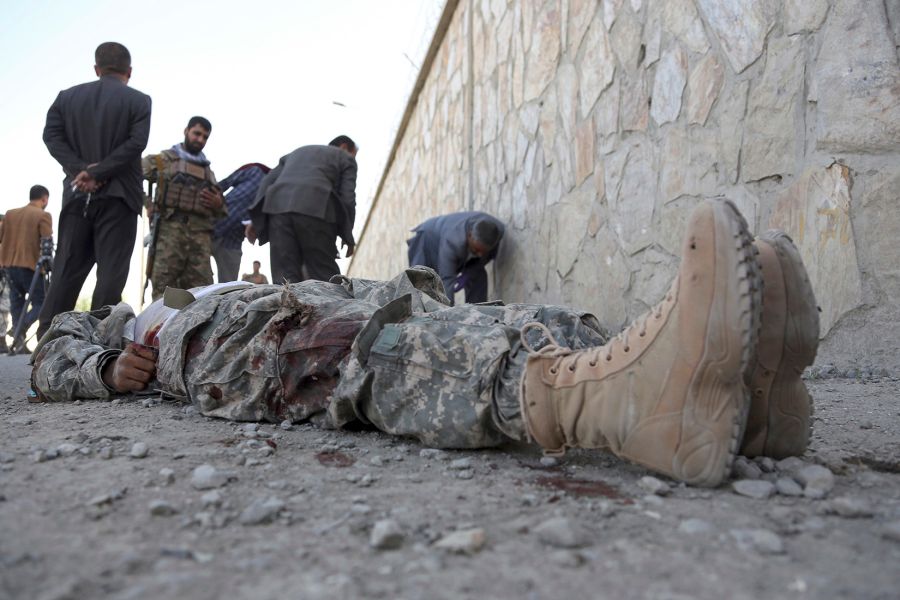The United States has warned that further airstrikes against Islamic State targets in north-western Nigeria are imminent, as Nigerian officials confirmed that recent attacks were part of coordinated operations between both countries.
The warning came hours after U.S. forces struck militant camps in Sokoto State, an operation President Donald Trump publicly framed as a response to what he described as the killing of Christians in Nigeria. U.S. Defense Secretary Pete Hegseth said the strikes were only the beginning.
“The president was clear last month: the killing of innocent Christians in Nigeria (and elsewhere) must end,” Hegseth wrote on X. “The Pentagon is always ready, so ISIS found out tonight—on Christmas. More to come. Grateful for Nigerian government support & cooperation.”
Nigeria’s foreign minister, Yusuf Tuggar, confirmed on Friday that the strikes were carried out as part of “joint ongoing operations,” pushing back against earlier tensions sparked by Trump’s public criticism of Nigeria’s handling of insecurity.
The airstrikes followed a brief diplomatic rift after Trump accused Nigeria’s government of failing to protect Christians from militant violence. Nigerian officials responded by reiterating that extremist groups in the country target both Christians and Muslims, and that the conflict is driven by insurgency and criminality rather than religious persecution.
Speaking to Channels Television, Tuggar said Nigeria provided intelligence support for the strikes in Sokoto and described close coordination with Washington. He said he spoke with U.S. Secretary of State Marco Rubio for nearly 20 minutes before briefing President Bola Tinubu and receiving approval to proceed, followed by another call with Rubio to finalize arrangements.
“We have been working closely with the Americans,” Tuggar said. “This is what we’ve always been hoping for—to work together to combat terrorism and stop the deaths of innocent Nigerians. It’s a collaborative effort.”
U.S. Africa Command later confirmed that the strikes were conducted in coordination with Nigerian authorities. An earlier statement, later removed, had suggested the operation was carried out at Nigeria’s request.
Trump, speaking in an interview with Politico, said the operation had originally been scheduled for Wednesday but was delayed at his instruction. “They were going to do it earlier,” he said. “And I said, ‘Nope, let’s give a Christmas present.’ They didn’t think that was coming, but we hit them hard. Every camp got decimated.”
Neither the U.S. nor Nigerian authorities have disclosed casualty figures or confirmed whether militants were killed. Tuggar, when asked whether additional strikes were planned, said only: “You can call it a new phase of an old conflict. For us, this is ongoing.”
Nigeria is officially a secular state, with a population split roughly between Muslims and Christians. While violence against Christian communities has drawn increasing attention from religious conservatives in the United States, Nigeria’s government maintains that extremist groups operate without regard to faith, attacking civilians across religious lines.
Trump’s public rhetoric contrasts with his 2024 campaign messaging, in which he cast himself as a “candidate of peace” who would pull the United States out of what he called endless foreign wars. Yet his second term has already seen expanded U.S. military action abroad, including strikes in Yemen, Iran, and Syria, as well as a significant military buildup in the Caribbean directed at Venezuela.
On the ground in Sokoto State, residents of Jabo village—near one of the strike sites—reported panic and confusion as missiles hit nearby areas. Local residents said no casualties had been recorded, but security forces quickly sealed off the area.
“As it approached our area, the heat became intense,” Abubakar Sani told the Associated Press. “The government should take appropriate measures to protect us. We have never experienced anything like this before.”
Another resident, farmer Sanusi Madabo, said the night sky glowed red for hours. “It was almost like daytime,” he said. “We only learned later that it was a U.S. airstrike.”
For now, both Washington and Abuja are projecting unity. Whether the strikes mark a sustained shift in strategy—or another brief escalation in a long war—remains unclear.
INTERNATIONAL GUARDIAN is the boldest and brightest issue-oriented international newspaper published in Houston, Texas. Strategically, it strives to promote private enterprise, support responsible government and advocate social justice.
Latest posts by Texas Guardian News
(see all)






























